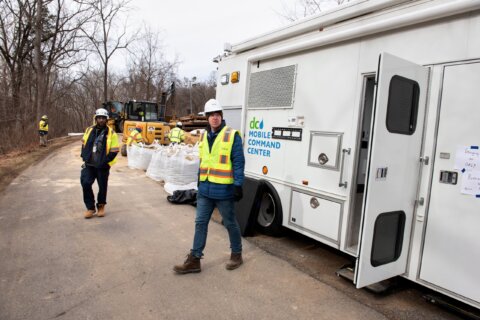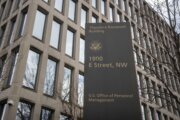WASHINGTON — City officials, union leaders and Metro told a D.C. Council committee that the coordination and communication problems leading up to the fatal smoke incident at L’Enfant Plaza on Jan. 12 have been around for a while.
Firefighter union head Ed Smith testified to the D.C. Council Committee on the Judiciary that radio problems aren’t just isolated to Metro tunnels. He said D.C. Fire and EMS have problems in huge buildings made of concrete or granite.
“We have a vehicle with repeaters that help boost the signal, but it doesn’t always work. These radio issues have been going on for many years. It’s something engineers will have to find the answer to,” says Smith.
Kenneth Lyons, of the American Federation of Government Employees, told lawmakers that problems are so bad with the city radios that cell phones usually work much better in Metro tunnels. Lyons pointed to many situations where the radios were unreliable for civilian medics and ambulance drivers to coordinate taking patients to local hospitals.
Smith agrees that cellphones sometimes work better.
“There are repeaters and antennas in the Metro tunnels. If they work with our radios, then everything is fine and the signal is good. But if it isn’t working right, then cellphones are a good backup plan,” he says.
Lyons described cases in which DC FEMS radios “honked out” when someone pushed the button on the radio to talk inside a Metro station. Honking out is when the radio honks to let the user know that the signal cannot reach its intended destination.
Encrypted radio systems were also a topic of testimony. In mid-December, the District of Columbia moved from the Motorola SmartZone 4.1 system to the P25 system. The old system was an open system, where anyone could listen to DC FEMS communications unless the agency went to one encrypted channel. The new system is a closed system, with most of the channels encrypted, blocking the public or anyone without the decryption key from listening.
Ultimately, the NTSB will have to determine what role the change of systems played in the radio troubles at L’Enfant Plaza.
“People should be able to hear routine calls from D.C. Fire. We had significant problems with the decisions with the previous administration on this and many other issues,” says Smith, referring to former Fire Chief Ken Ellerbe and Deputy Mayor Paul Quander.
“For a department that was already plagued with programs, the one thing that worked decently, they screwed up,” he adds.
Smith thinks the culture at DC FEMS during the Ellerbe administration emphasized limited communication with outsiders or consultation with the union. The relationship between Ellerbe, Quander and Smith was not good. The relationship with Metro was not much better, he added. Ellerbe eliminated the DC FEMS liaison to Metro, which has since been restored.
“I hope there are no walls,” says Kevin Donahue, Deputy City Administrator overseeing public safety issues. “If there are, it’s going to get torn down pretty quickly. I work with and interact with Ed Smith quite a bit, and we’ve been talking to WMATA. So if there is a wall there, it’s not going to be there much longer.
“Not only do I have regular communication between [Metro interim GM] Jack Requa, but I want our mid-level staff to interact. I want our engineers to be talking to their engineers if there are changes or problems with the radio system in the future without needing to run it up the ladder,” he adds.
Metro seems to applaud this renewed effort to re-open communications with outside agencies in the new administration. The agency told reporters that it was totally unaware that the D.C. Office of Unified Communications made changes to the city’s radio system at One Judiciary Square just one month before the L’Enfant Plaza incident. Metro says the changes were found and fixed two days after the incident.
“We want everyone to understand that things you do or we do to the radio system may have an impact on the other side and we want to make sure that communication link exists between us,” Requa says.
Lawmakers questioned officials for nearly three hours about the radio issues, noting that each side has to do better in the future.





